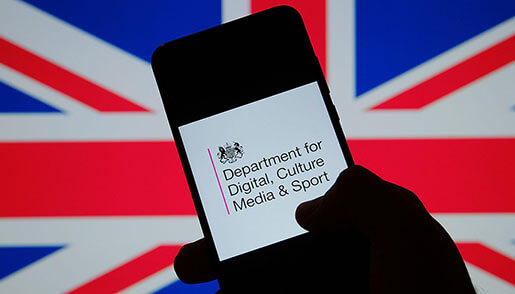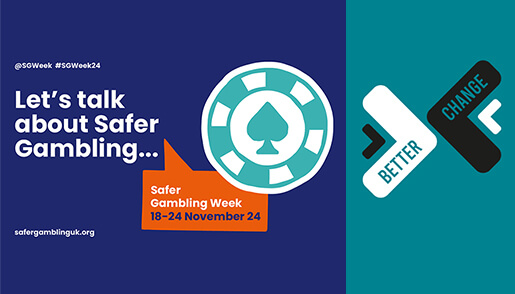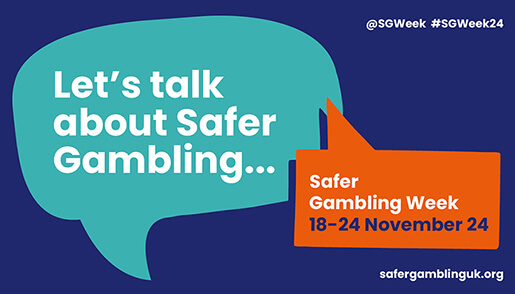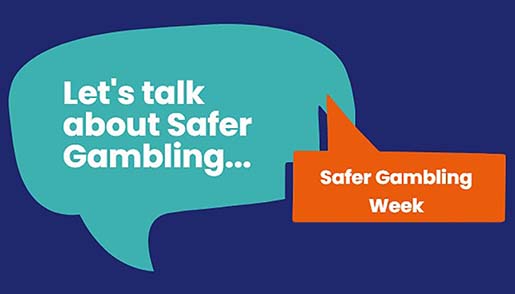Responsible Gambling
It is important to WhichBingo that all our users are aware of the potential risks in regards to gambling and know how to spot the warning signs of any potential gambling problem. We want people to play and have fun, but we realise that problems can develop. Here you will find details of the warning signs that all may not be well with your own gambling habits, or those of someone close to you. We explain how gambling works and how easy it can be to get carried away, together with tips and measures to ensure you stay aware of how you are playing. We have checked out what the gambling sites have to do to try and ensure you play in a safe and worry free environment, the responsible gambling tools that are available for you to help yourself as you play and how the industry is endeavouring to protect minors from trying to gamble too soon. We also have a list of resources that you can reach out to for fast and confidential help.
How Gambling Works
Gambling is a broad term that encompasses various activities where individuals wager money on uncertain outcomes ( a horse race, the spin of a roulette wheel) with the hope of winning more than they risk. It operates on the principle of risk and reward, where participants accept the possibility of losing the amount of their bet in exchange for the chance to win a larger prize.
Here’s a brief outline of how gambling works, including how businesses benefit from it and how people can become addicted:
- House Edge and Probability: In most forms of gambling, there’s a built-in advantage for the house, often referred to as the “house edge” or “house advantage.” This means that the odds are stacked slightly in favor of the house, ensuring that over time, the house will make a profit. The house edge varies depending on the game and the rules involved. Probability and statistics play a crucial role in determining the likelihood of certain outcomes and calculating the expected value of bets.
- Revenue Model for Gambling Businesses: For gambling businesses, revenue is generated through the difference between the amounts wagered by players and the winnings paid out to them. This margin represents the gross revenue for the business. Additionally, ancillary services such as food and beverage sales, entertainment, and accommodations (in the case of casinos) contribute to overall revenue. Moreover, gambling businesses often employ sophisticated marketing strategies to attract and retain customers.
- Psychology of Gambling: Several psychological factors contribute to why people engage in gambling activities. These include the excitement and adrenaline rush associated with risk-taking, the allure of potential big wins, social interaction and camaraderie (in the case of activities like poker or bingo), and the escape from stress or boredom. Gambling can also be influenced by cognitive biases, such as the gambler’s fallacy (believing that past outcomes influence future ones) and the illusion of control (believing that one can influence random events).
Our Safer Gambling Partner – Better Change
We are working with the Better Change organisation to ensure that bingo, slots and casino games can be enjoyed in an environment of ‘Positive Play’ – so while we advertise all sorts of bingo offers, staff are trained to be aware of potential risks to customers.

At Better Change, the primary mission is to foster a culture of responsible gambling and empower individuals with the knowledge and resources to maintain a healthy gaming experience. Collaborating closely with WhichBingo, they strive to create an atmosphere of ‘Positive Play’ within the realm of bingo, slots, and casino games. Our partnership extends beyond mere promotion, as it involves comprehensive training programs for staff members to recognize potential risks and warning signs of gambling-related issues. Many of the gaming brands endorsed by WhichBingo actively engage with Better Change , both in the online space and on the high street, reinforcing a commitment to player safety and well-being.
As part of our collective effort, this section provides valuable insights into identifying warning signs of problematic gambling behavior and offers links to tools and organizations dedicated to assisting those facing challenges related to online gambling activities. We believe that through education, awareness, and support, individuals can enjoy their gaming pursuits responsibly and maintain a positive balance in their overall well-being.
If you’re worried about your own gambling or a friend’s please visit gambleaware.org.
Latest news





Responsible Gambling FAQ
What is responsible gambling?
Responsible gambling entails engaging in betting activities in a manner that ensures it remains a form of entertainment rather than causing harm. It involves managing finances, setting limits, and being aware of signs of problematic behavior.
How can I gamble responsibly?
Responsible gambling involves setting limits on time and money spent, utilizing tools like reality checks and self-exclusion, staying informed about risks, and seeking help if needed. It prioritizes enjoyment over excessive risk-taking.
Do casinos promote responsible gambling?
Casinos collaborate with organizations like Better Change to promote responsible gambling through staff training, offering self-exclusion programs, and implementing tools for players to manage their behavior. However, it remains a shared responsibility between operators and players.
How do I know if I have a gambling problem?
Signs of a gambling problem include spending beyond means, difficulty stopping, conflicts with loved ones, loss of interest in hobbies, and emotional distress. Recognizing these signs prompts seeking help from support organizations.
What types of support can I receive?
Support for gambling-related issues includes helplines like BeGambleAware and GamCare, counseling services, residential treatment programs, and online resources. Various organizations offer confidential assistance tailored to individual needs.
How to tell if someone has a gambling addiction?
Identifying gambling addiction can be challenging as individuals may hide their behavior. Signs include financial problems, preoccupation with gambling, lying or concealing activities, and neglecting responsibilities or relationships.
Can I put limits on my online gambling to stay in control?
All of the online casinos and bingo sites that we feature here offer players the option to set a variety of limits on their play. These include daily, weekly and monthly deposit limits, loss limits, session time limits, and maximum stake limits
Are there any tools available to help me track and monitor my online gambling activity?
For anyone concerned about problem gambling, there are a range of tools available to help you track and monitor your activity. These include gambling spend calculators, which which will help you determine how much of your weekly or monthly budget you are spending on gambling, and how these compare to recommendations in the Lower Risk Gambling Guidelines (LRGGs).
Is self-exclusion an option at online casino and bingo sites?
Self-exclusion is offered by all of the online casinos and bingo sites that we feature. If you’re concerned about your gambling, you can request that a site exclude you from playing with them for a set period of time, which can be anywhere between six months and five years. You can choose to self-exclude from particular sites, or all online gambling sites.
Are there any warning signs that I may be at risk of gambling addiction?
If you are concerned that you may be developing a gambling addiction, our self-test page highlights the different warning signs. You can take the self-test here.
Where can I get help for gambling addiction in the UK?
There are a number of UK organisations dedicated to helping UK problem gamblers. We have provided a comprehensive list of who to approach if you are worried that you are becoming addicted to gambling here.





